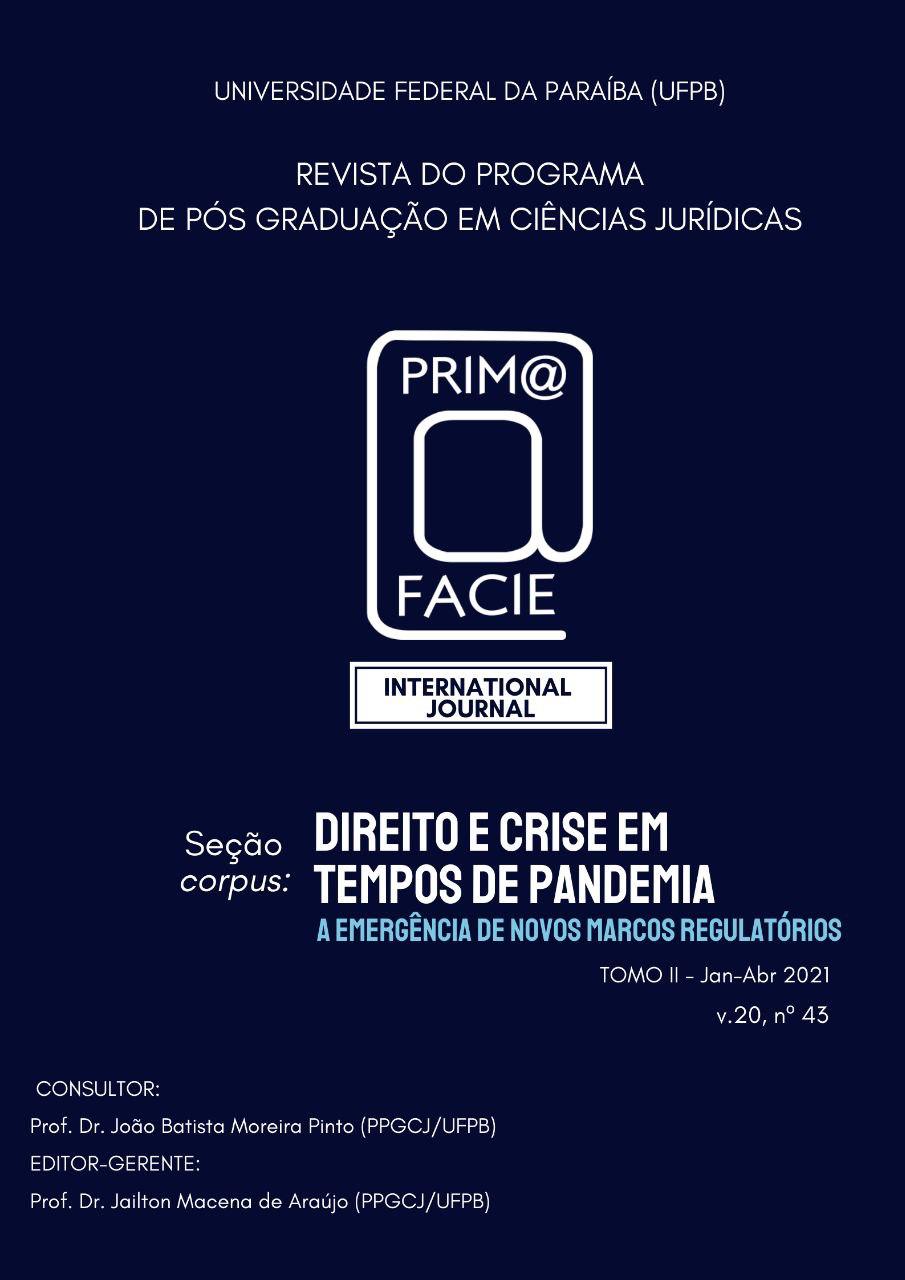The Protagonism Of The Judicial Branchin Front Off The Recurrent Need For The Judicial Control Of Constitutionality Of The New Provisional Measures
DOI:
https://doi.org/10.22478/ufpb.1678-2593.2021v20n43.54244Keywords:
Marcos regulatórios. Protagonismo. Diálogos Institucionais. Poder Judiciário.Abstract
This present article aims to highlight that the urgency for regulatory frameworks that discipline situations that have never been experienced, such as those currently generated by the state of calamity decreed as a result of the coronavirus (COVID-19), caused the Judiciary to be exhaustively provoked to manifest, which ended up generating discussion about the advance of the protagonism of this Power in view of the measures adopted by the Executive and Legislative Powers.The present research is justified since the Judicial Branch has exercised considerable leadership in the social and political arena, with decisions that have had repercussions on these spheres. It is an exploratory, qualitative research, which uses the analytical-deductive method, and which uses books, scientific articles and doctrinal texts.The research shows that, despite the protagonism of the Judiciary, it does not act in a way to create a clash between the Powers, but that, through the existence of institutional dialogues, it is possible to guarantee the prevalence of the Federal Constitution over political interests, without interfere in the competence of the other Powers.
Downloads
Downloads
Published
How to Cite
Issue
Section
License
Copyright (c) 2021 A Prim@ Facie detém direitos exclusivos de publicação e distribuição sob concessão absolutamente franca da parte do autor, ou autores.

This work is licensed under a Creative Commons Attribution-NonCommercial-NoDerivatives 4.0 International License.
Os autores estão cientes de que transferem seus direitos de publicação e distribuição à revista Prima Facie. Os autores autorizam o uso do trabalho para fins não-comerciais, incluindo direito de enviar o trabalho em bases de dados de Acesso Livre. As provas finais poderão não ser enviadas aos autores antes da publicação, seguindo a revista seu padrão técnico explicitado nas suas normas e nos formatos praticados em acordo com a CAPES e com padrões de excelência adotados. As opiniões emitidas pelos autores são de sua exclusiva responsabilidade não sendo a revista solidária da livre opinião exposta por eles.

